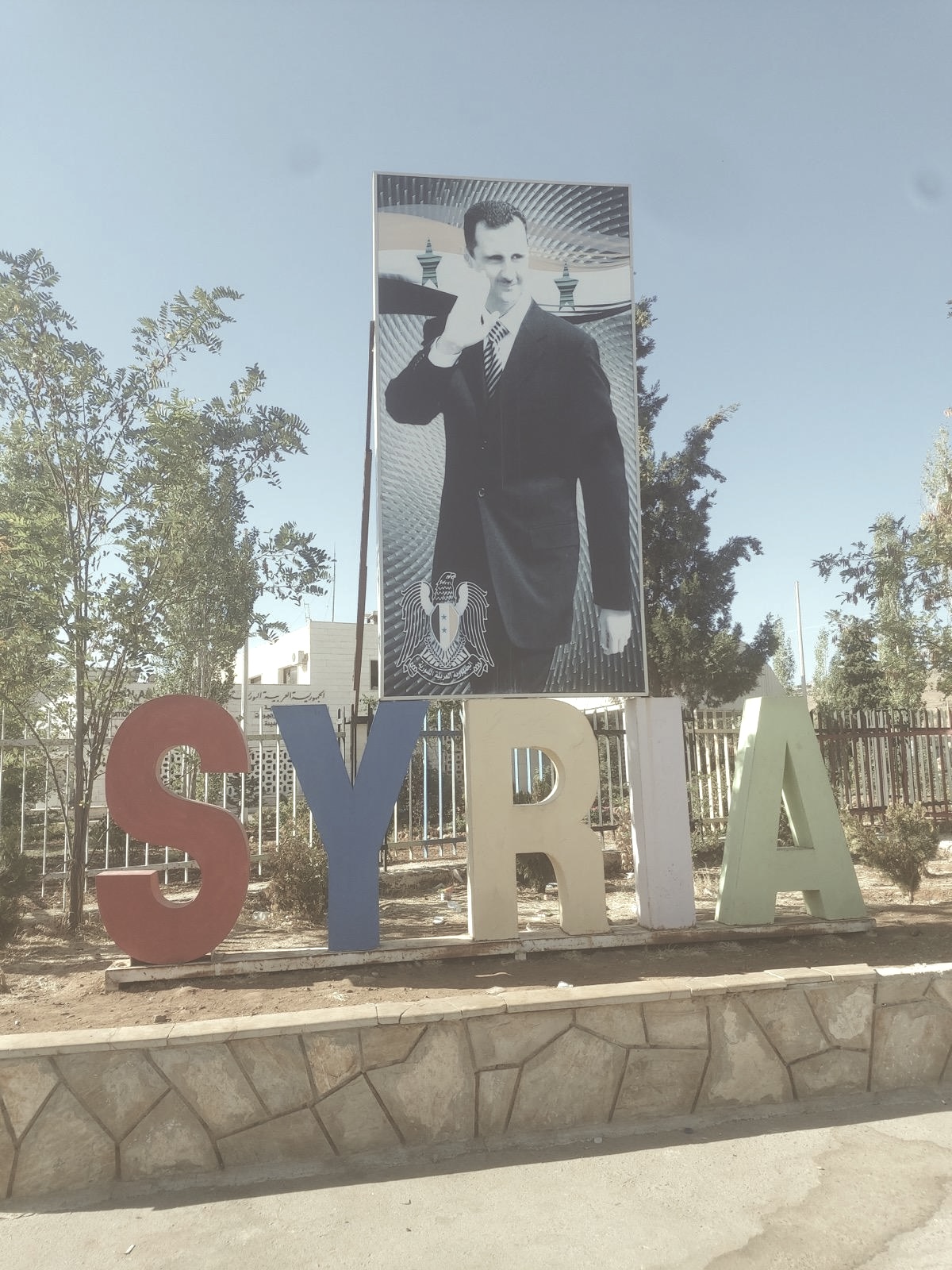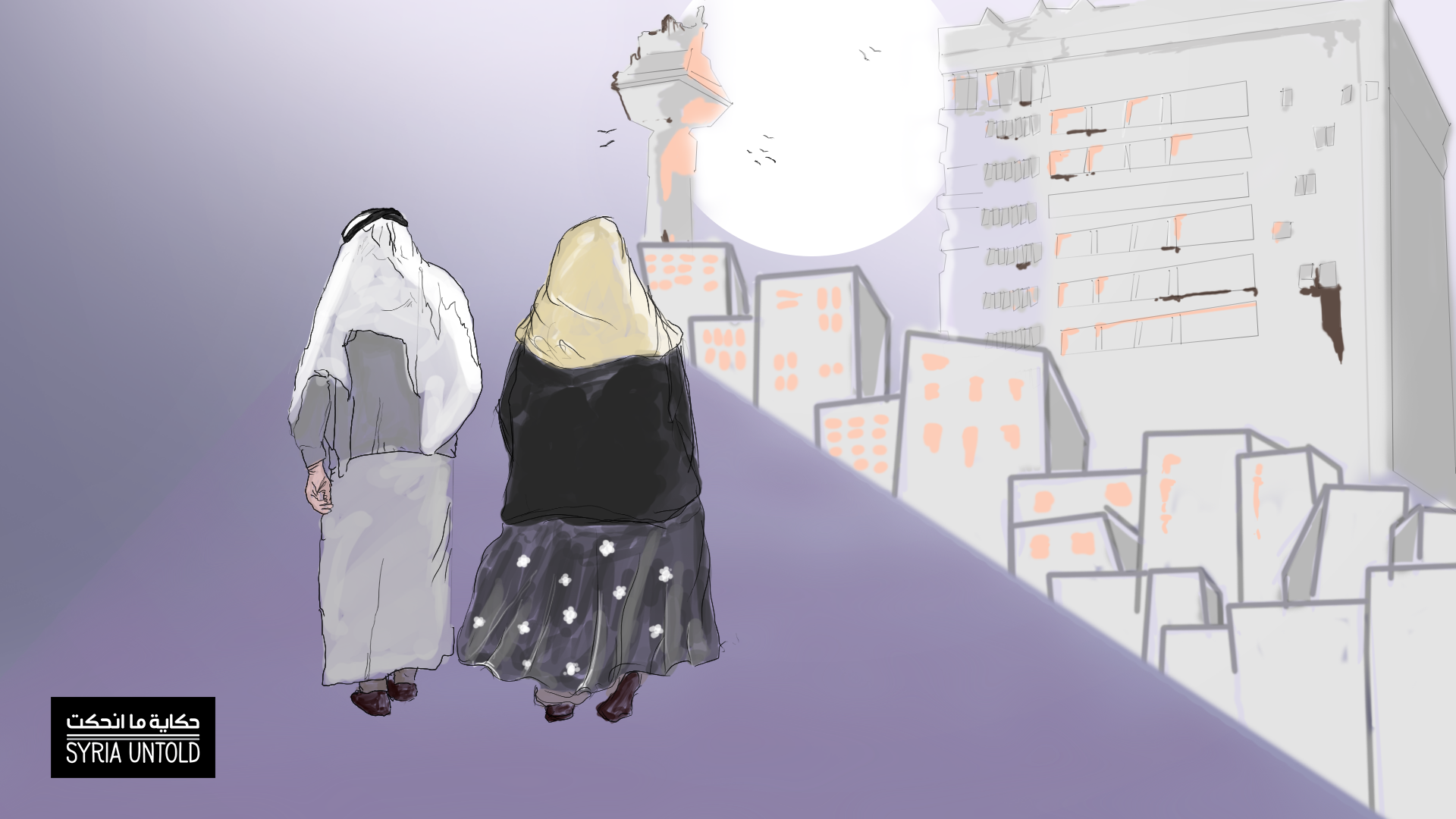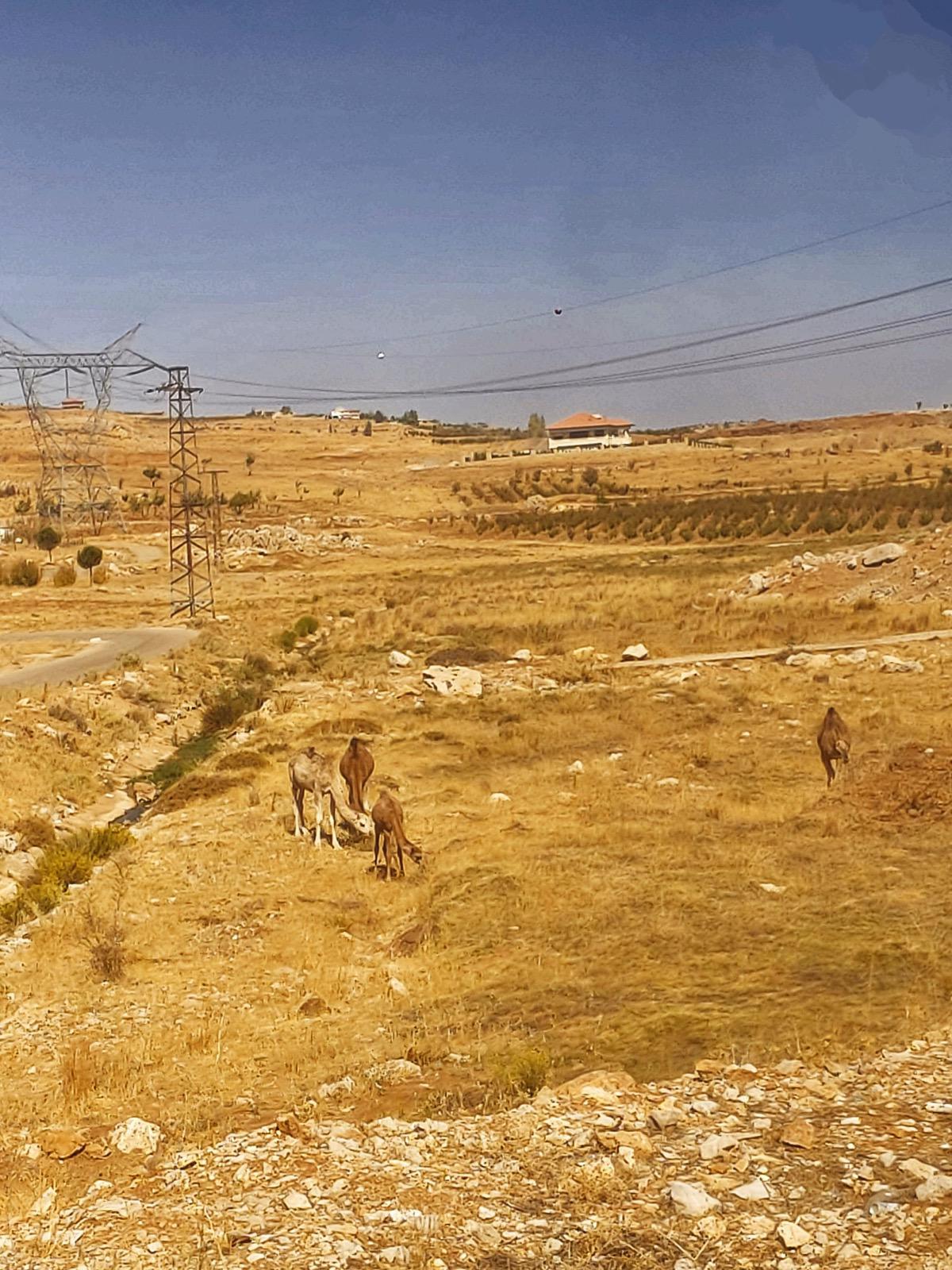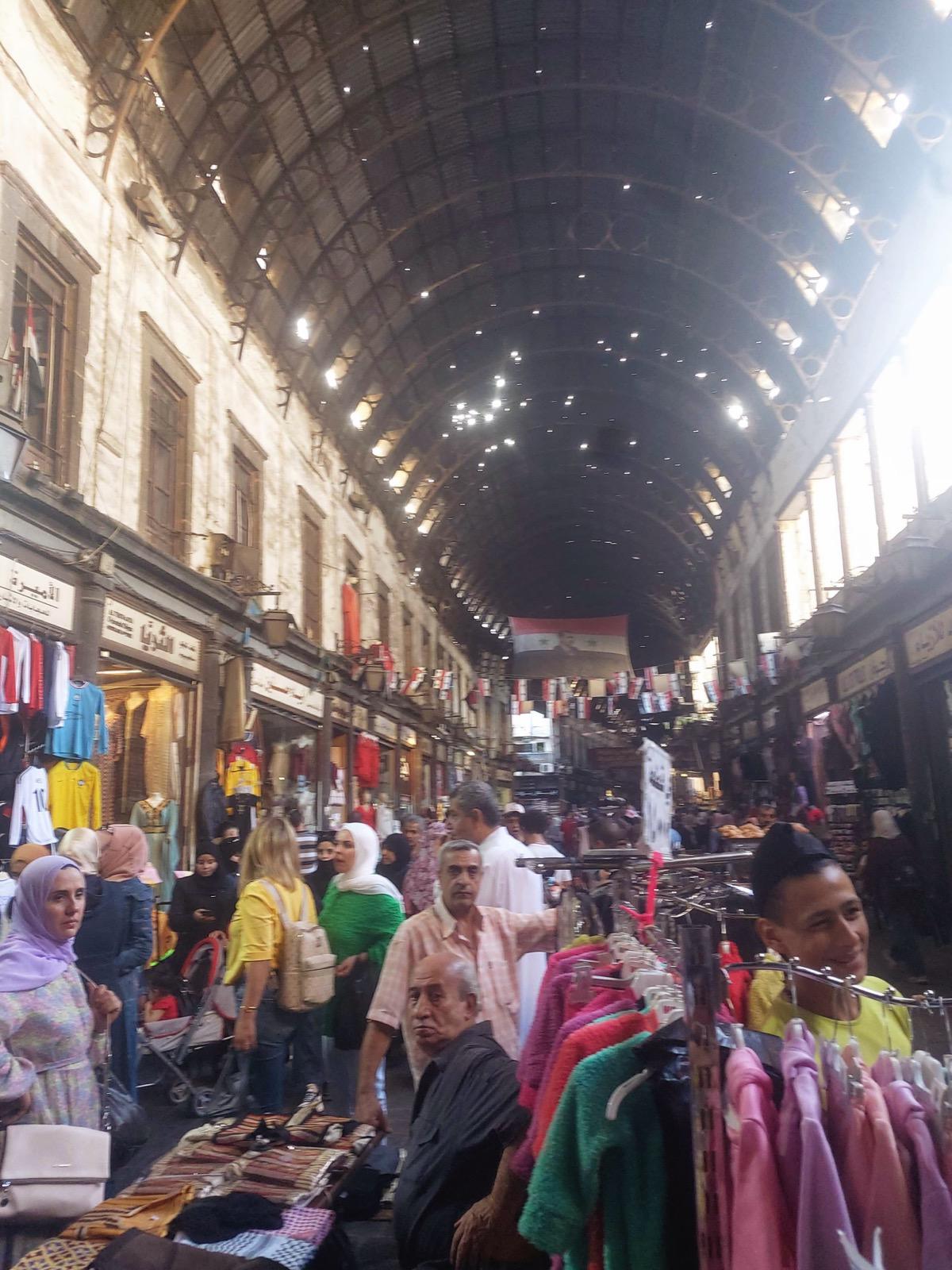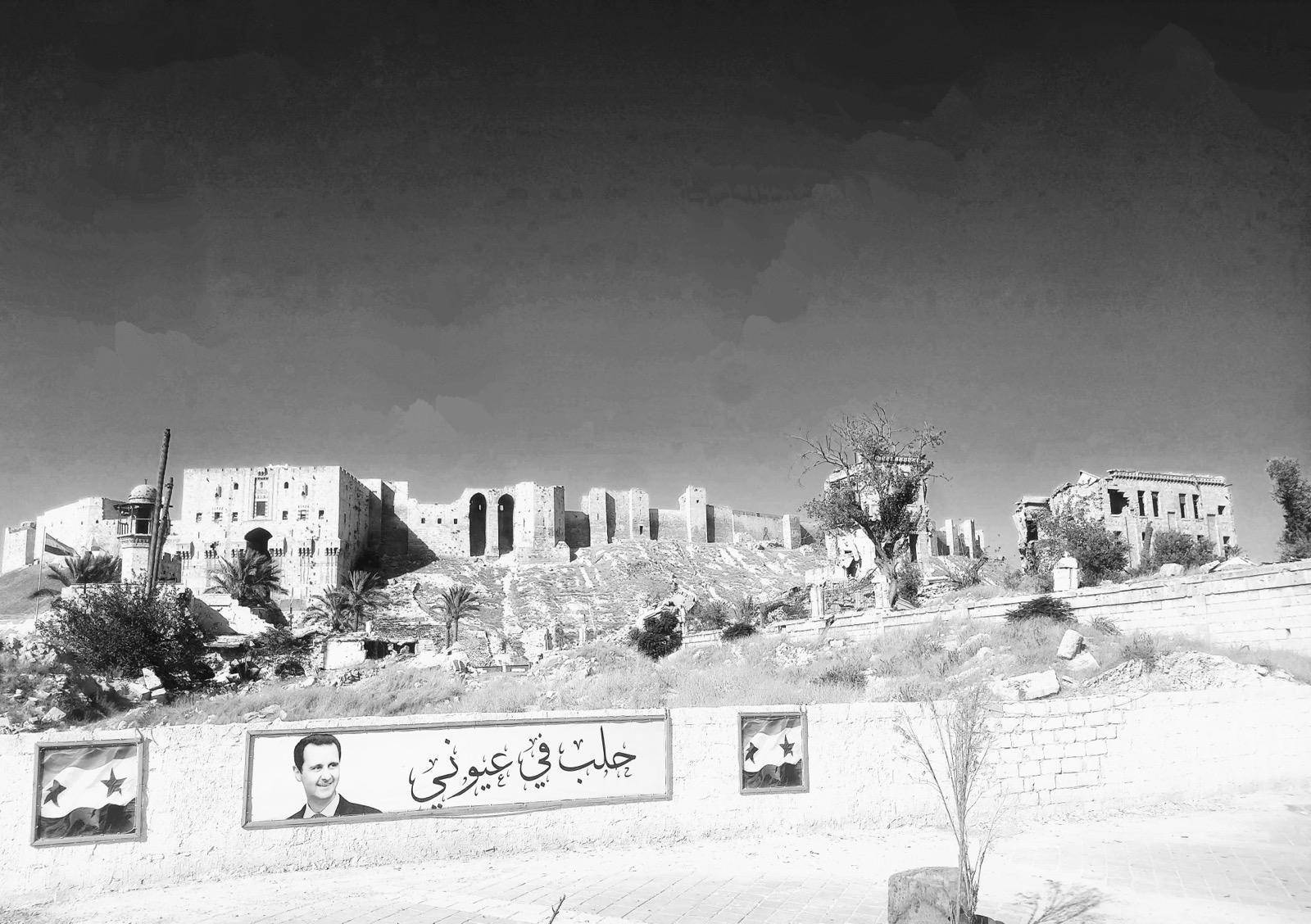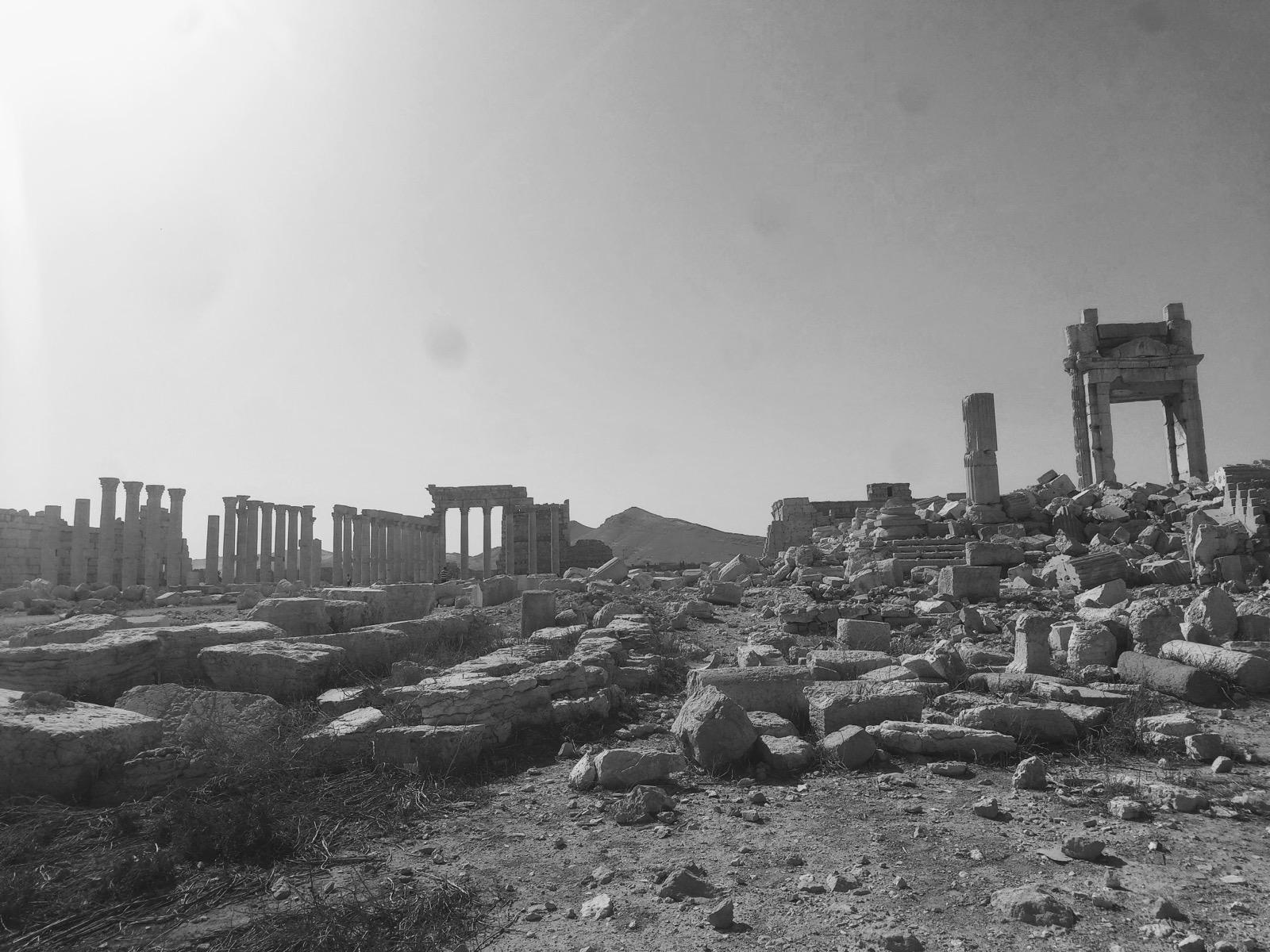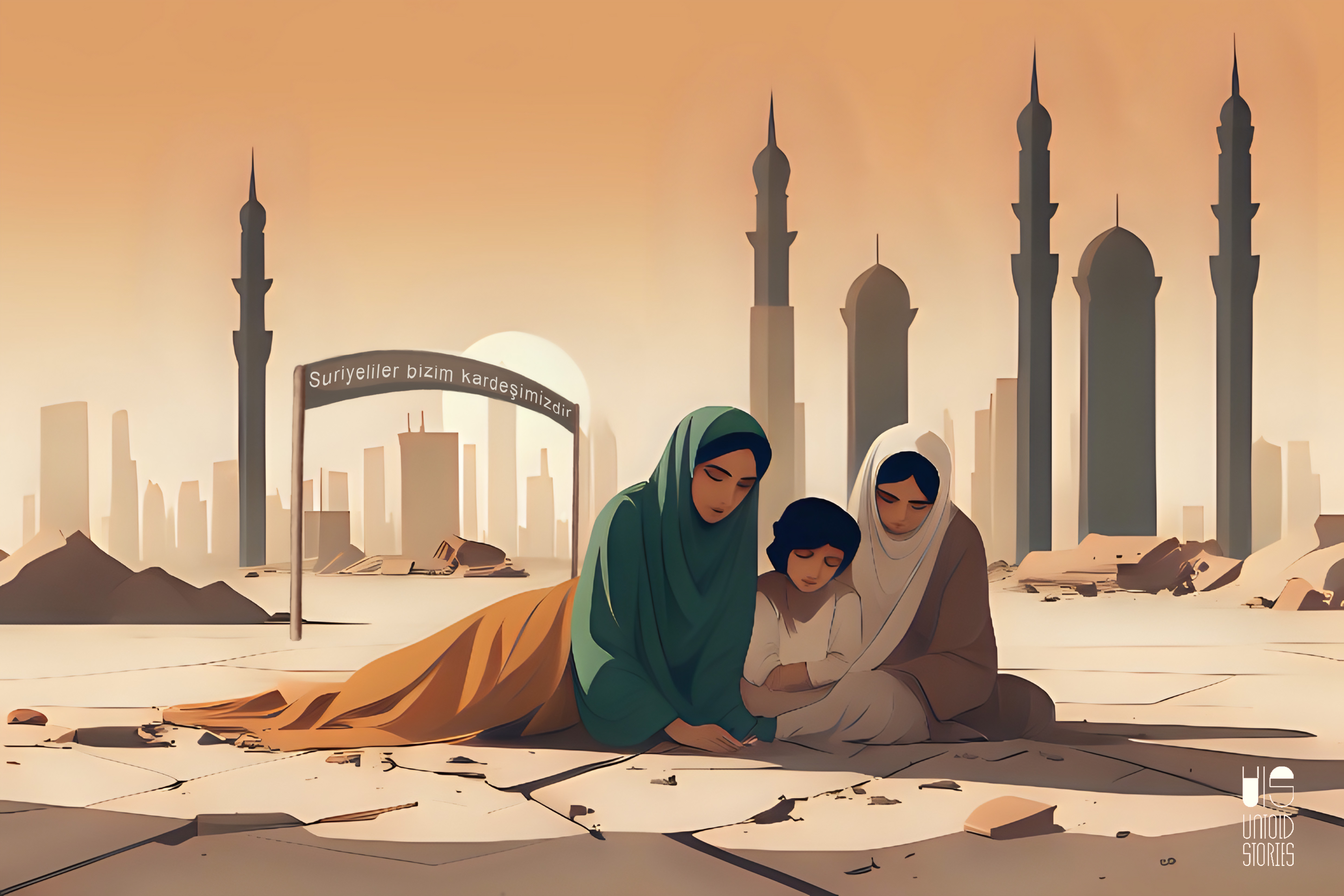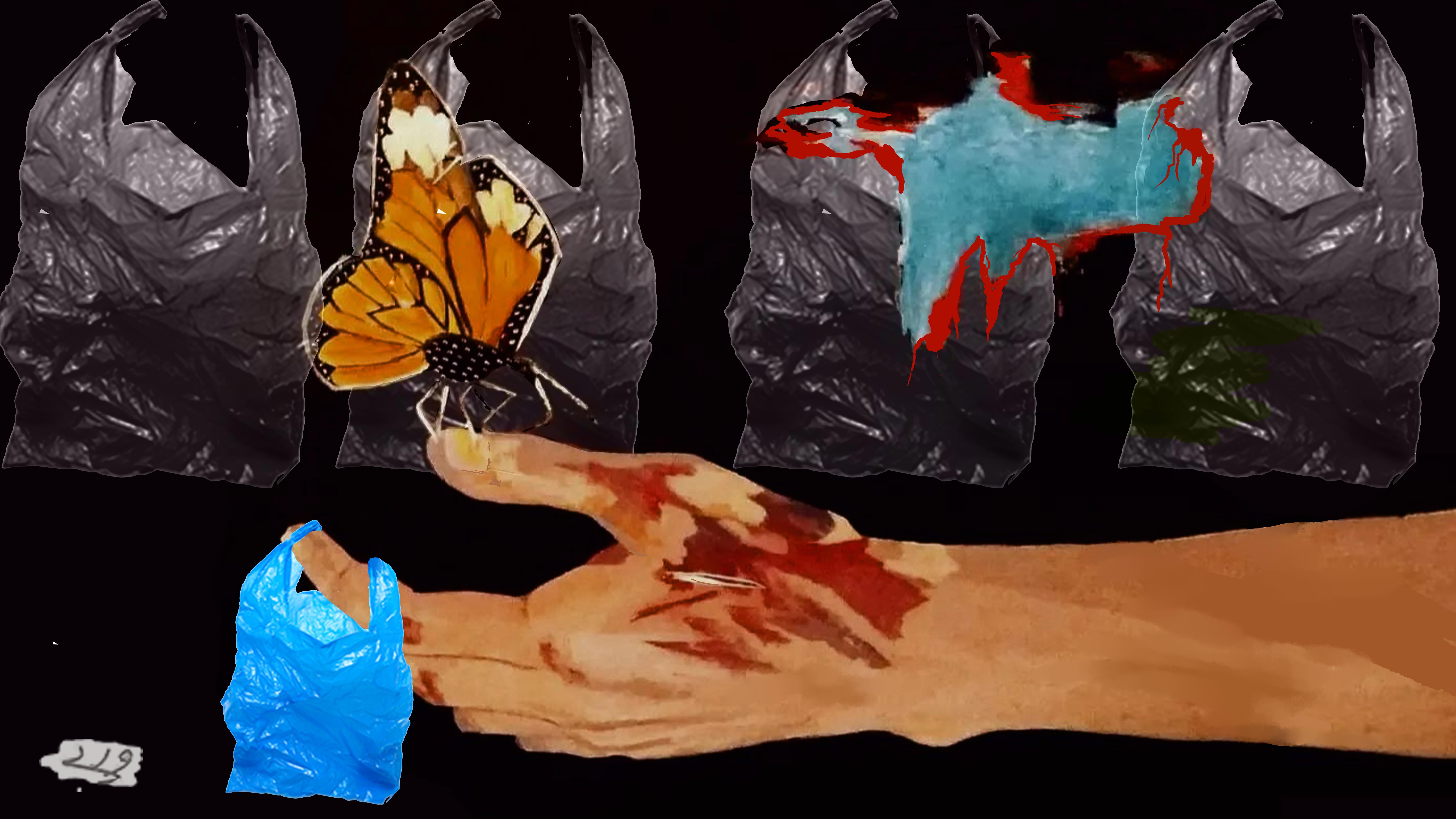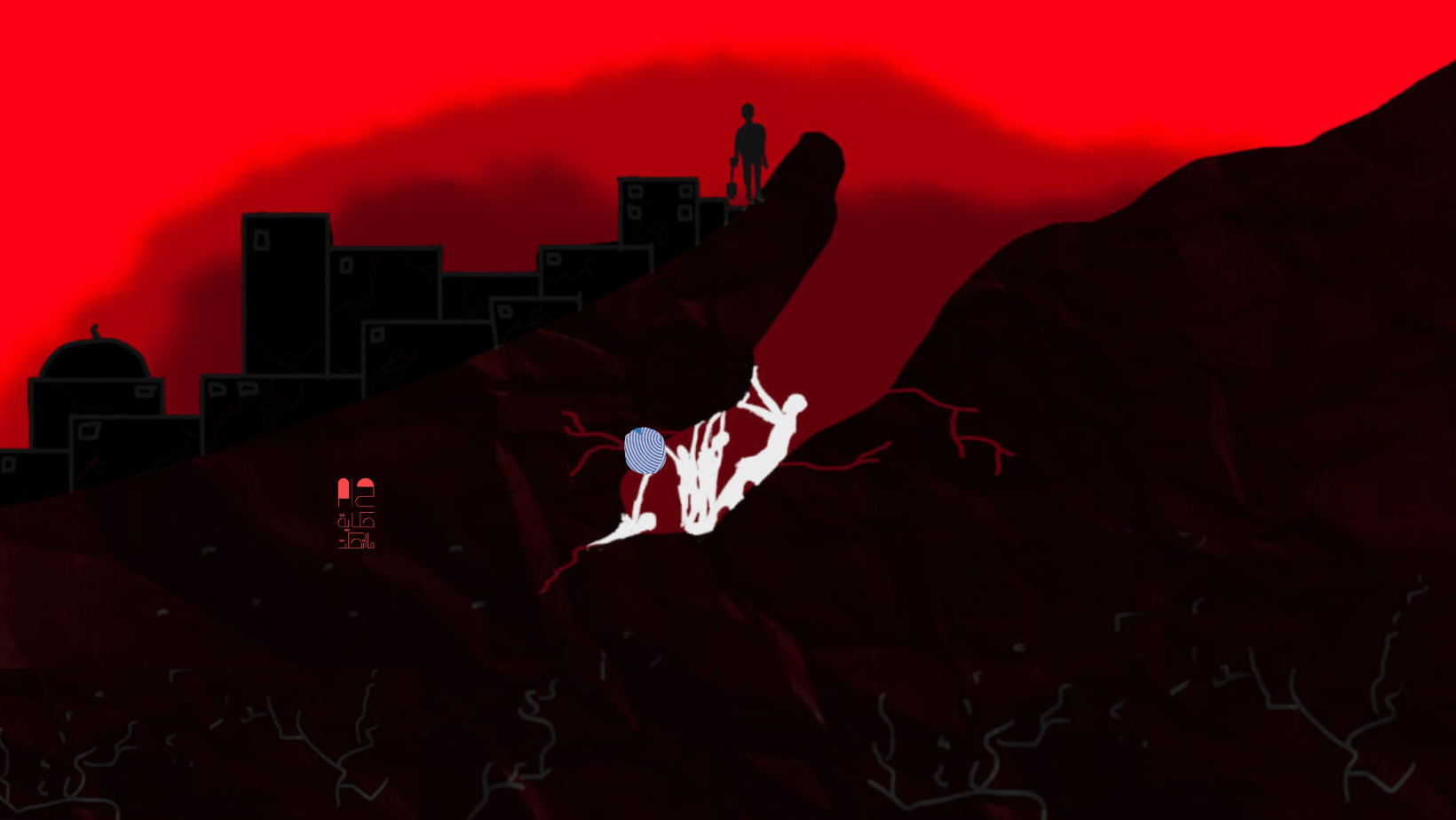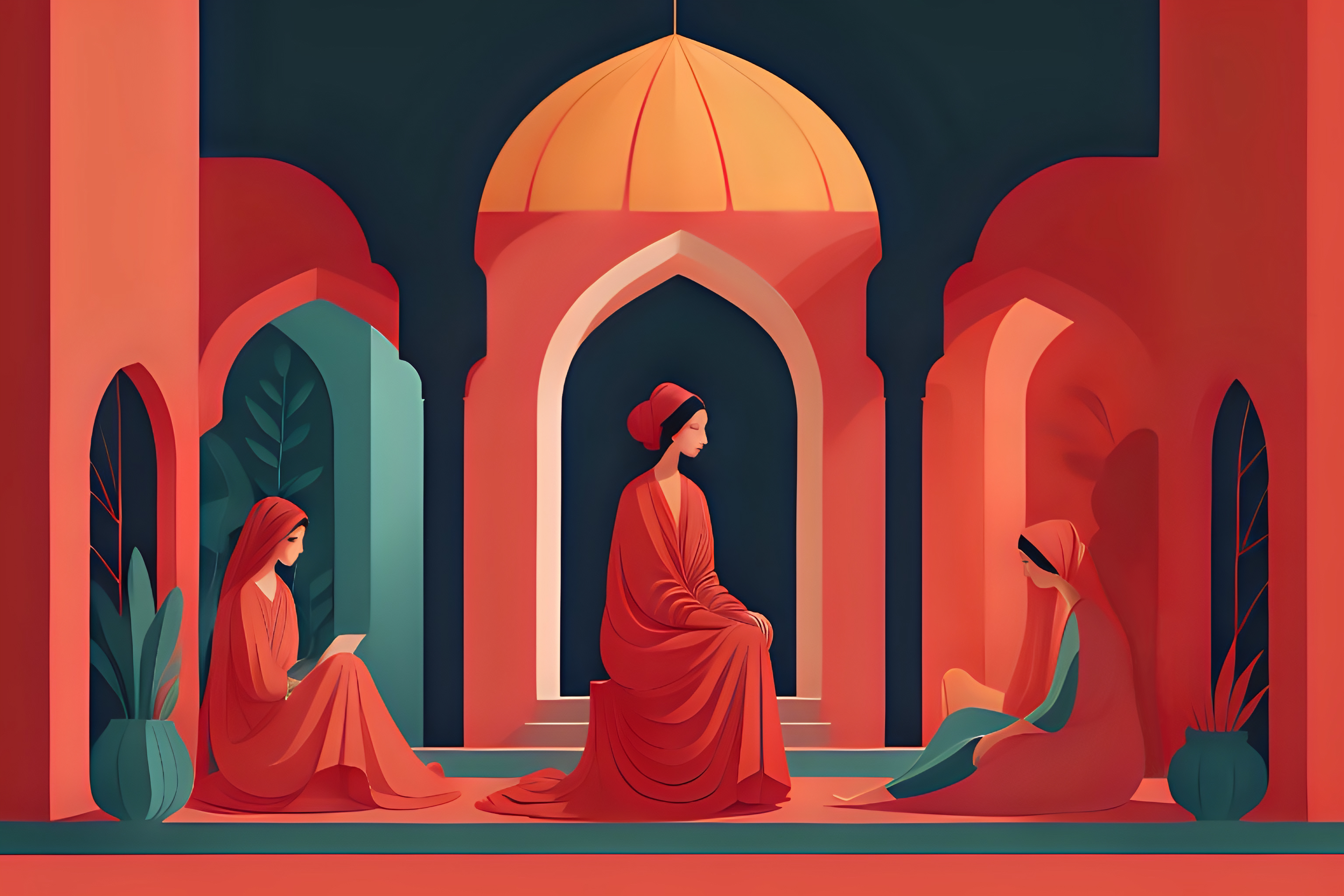Al-Jdedeh
Above all, I slept on the ground. I dozed on the first sidewalk I found, waiting for the Syrian soldiers to stamp my passport.
The trip organiser, Mariam, had taken it. Bearing 30 European passports in hand, she had gone alone to the border office to let the authorities release our entry visa without even looking at our faces, because only our papers were brought to the military. They had already checked my ID a few days earlier. The visit to Palmyra required a special permit, which was extremely difficult to obtain. Holding my arms open, I was half asleep on the ground of a country still at war, and that I knew only through my books and the people I met abroad. Indeed, I had extensively studied the country’s history, as I was preparing a doctoral dissertation on the deconstruction of religious and gender identities in Syrian and Lebanese French-language ultra-contemporary literature. I had also spent months doing medical translation from Arabic to Italian in refugee camps in Lebanon and got to hear many stories of exiled Syrians. I was therefore extremely grateful for the opportunity to finally visit Syria, and witness the effects of the war on its space and people.
From my eyelid half-closed, I could see above me a large multi-coloured sign, exuding a kind of simulacral sorrow: “Syria”. A huge poster of Bashar Al-Assad stood above my dozing body and these dull and dead-coloured letters; his hand was raised in greeting, his grim face hinted at a sneer conveying his unease, and one of his eyes was more closed than the other, as if a sun had hit it too hard.
His image was monitoring my sleeping body on the floor.
Al-Masnaa
While I was lying on the pavement, my thoughts retraced the stages of my journey to calm the adrenaline.
I left Beirut at 4 a.m. and arrived in Syria after 7 hours, I guess. However, Beirut and Damascus are only 114 km apart.
In the Bekaa valley, at the Al Masnaa border crossing, I had struggled to get my exit stamp from the Lebanese General Security: my visa has expired for months, complicating my transition from cedars to jasmine. As punishment for my overstay, I had to pay.
- “That’s €1.5, isn't it?”, I asked the Lebanese soldier with a playful air.
- “Mashallah! I see you’re well-informed about the procedure”, he replied, laughing.
Behind me, a Syrian woman was squirming, shouting baddi ruḥ ʼala al-Sham la ʼamel ʼamaliyye. Khallūni emroʼ or, in other words, to let her pass since she wanted to go to Damascus to have surgery. One man wriggled impatiently, seeking the soldier’s goodwill: Yʼatik al ʼafie, habibi. Voices and voices mingled, interspersing some Ya ustez, yaʼtik al ʼafie, ya sidi…
‘Little Syrias’ in a big world
26 July 2021
Once I got my exit visa, I went to exchange money in a sarraf. It was forbidden and risky to enter Syria with dollars. In the shop, a man filled my rucksack with 2,000 Syrian lira bills depicting Bashar al-Assad’s face. It was as if I was entering Syria holding a suitcase of money, obtained through shady deals.
“Tfaddali mademoiselle”, he said, as he filled my red backpack, which was then bursting at the seams, storing a collection of small-format President’s portraits. And yet I had only exchanged 150 euros!
In Between
I crossed the border in a taxi. The Syrian driver had explained to me that, before arriving at Al Jdedeh to obtain my entry visa, I would have had to cross a stretch of land between Syria and Lebanon: a military border area, a no-man's-land, which is already Syria but, in a way, also and still Lebanon.
At that time, I could not say exactly where I was. But I certainly felt more in Syria than in Lebanon. On my mobile, my Alfa internet service stopped working, and the landscape was turning increasingly orange and yellow.
Suddenly, Mariam’s voice interrupted my flow of thoughts. She was making the call to return our passports, now stamped. I had to stand up.
Damascene Heterotopia
I passed through three block stations before arriving in Damascus. There, I got off in front of Bab Sharqi. I only spent one night in the capital and had to run to visit all the historical treasures of this thousand-year-old city.
I wandered along the main street, the Souk Midhat Pacha, where the air smelt of a special magic. The architecture reminded me of certain towns in southern Bavaria as some parts of the buildings were made of wood. The bicycles, speeding through the narrow streets branching off here and there, reminded me of everyday life in Amsterdam. In Beirut, I was not used to that view: no one was using bicycles and, after the civil war, ancient houses were replaced by skyscrapers. But something was different. I was in a gentler and warmer world, valuing human life and its rhythms much more than Europe does.
Sitting in front of their little shops, sellers of antique objects chatted with friends while drinking coffee or smoking narghile. In the souk al-Hamidiyeh, smiling shopkeepers, showing a surprised or even shocked face, asked us shu ʼam taʼmlo hon?, namely what on earth we were doing in Syria, and then engaged in long conversations.
I lost myself running through the alleys of the market until sunset: the city seemed to me an embrace to the human being. I finally bought a small Quran with water-green decorations and multi-coloured pages, and then ate pistachio ice cream at Bakdash with Mariam and the others. I was amazed at the way they made it, pounding it with long mortars in round metal containers.
Outside the market, some women with their children approached us to inquire into our origins and take photos together. Their eyes suggested the shock provoked by our presence. I was there to visit the Umayyad Mosque, the tomb of Saladin, but in the end, it was as if Syrian people were visiting me. As I stared in amazement at the mix of traditions engraved on the facades of the Mosque, they scrutinised my body, my hair, my clothes, trying to attribute an origin to my Arabic accent.
And if, during my brief existence on Syrian soil, I often felt out of place, as if I did not have the right to enter this country, at least before my exiled friends who could not return to visit their families, these bewildered eyes seemed to tell me thank you for coming. Indeed, we represented a return to normalcy for them: if tourists had decided to enter Syria, it meant to them that there was no longer any danger, that the war was over, that they could simply re-appropriate their centuries-old city, where, before 2011, it was normal to find fleets of visitors. This astonishment was the most obvious trail of the horror of the crisis, and not those signs of war that I had searched long and hard for, without finding them, in the buildings and their facades. As for them, they had preserved all their majesty.The city centre of Damascus remained under regime control during the war, and there was no reason for Assad’s army to bomb this part of the town.
In the evening, the streets of Damascus came alive. In people’s faces, I recognised that unique smile which is nothing but a way to resist. Around the joyous walls, bars and restaurants offered meals and cocktails, while the loud music of the cars turned the Souk Midhat Pacha into a dance floor.
In this atmosphere, I wondered if the ruins I had seen on TV were real, if this war had really existed. But I soon realised that only the heart of Damascus was still throbbing with the joy of its anaesthetised inhabitants. This miraculous circle was transforming the city into a festive heterotopia opposite the desert, which was swallowing up all that remained, and trying in vain to bury it too.
Descending to Lake Cocyte from Aleppo to Palmyra
Just outside the enchanted circle, on the outskirts of Damascus, skeletons, with already decomposed flesh, lined up one after the other in a hellish landscape. They were nothing but the carcasses of collapsed buildings, grey traces of emptied and scattered lives.
Miles of graveyards stretched between the suburbs of the capital and Hama, Hama and Aleppo, Aleppo and Palmyra. Destroyed villages, where all that remained were restaurants and hotels with toppled signs, still bearing an exploded letter w lc me inscription. In the solitude of these shards of buried life, only the minarets had survived the bombardments. Or perhaps they had already been rebuilt before the houses, dripping cement tears.
After hours of driving I arrived at a hotel, located in Aleppo’s principle square. In the lobby, there was also a big picture of President Assad. Going up to my room, shattered from the trip to Damascus and then Hama, I decided to take a quick shower. I stood in the shower with no water, unable to wash myself. I had a bottle of mineral water, and I used it to brush my teeth: I had learned this alternative method in Syrian refugee camps in Lebanon, where only orange or red water came out of the taps.The electricity went out throughout the hotel on several occasions, and the internet connection was also blowing up all the time keeping me, Mariam and the group isolated from the world.
Syria, Ukraine and bonding over activism
13 August 2022
Outside, Syrian people were coping with the lack of basic necessities like water, electricity, and food on a daily basis. Generators had invaded Aleppo and other cities. I could recognize their noise: I was also using it in Beirut to light my apartement, since the Lebanese government was only sending people electricity for 2 hours a day. However, in Syria, almost no one could afford to pay for the gasoline powering generators nor for private water, thus remaining in the dark.
Later I went down to the city. They were rebuilding a mosque with green domes, called “The President’s mosque”. I asked a woman passing by for some information about this construction project. “They are rebuilding the president’s mosque, while we are everyday walking through bombed buildings and rubble,” she said.
The citadel of Aleppo protected the Power by welcoming the Syrian army among its thousand-year-old stones. Its walls bore the inscription Halab fi ʼayouni — Alep is in my eyes — placed alongside a picture of the half-bust of Bashar al-Assad, portrayed while smiling and looking at nothing. Other posters of him had been hung on the ancient walls of this centuries-old monument.
I observed the whole city from the top of this bastion, which had been built into a hill about 50 metres above the ground for defensive purposes. From this vantage point, a single glance could embrace the whole city, all white, half-destroyed, emptied of half its original population.
Then I went down to the souk, where the warmth of the Damascus market had turned to shards of rubble, a consequence of Assad forces and Russia’s bombing.
Walking through the ruins, a passerby noticed my discomfort and then stopped and said: “We all know who did this. As the market reconstruction has already begun, the regime is now sending letters to the old store owners in Aleppo asking them to return to Syria and reopen their boutiques in the souk. No one answers the call for fear of being arrested or tortured. They ask people to return after destroying their lives”.
At sunset, I found myself walking among the ruins, visiting traces of death and disappearance. Caught by an unknown guilt, I let darkness and silence penetrate me.
My trip had transformed into a path of atonement. My walk was often interrupted by children without shoes or socks, asking me for a bit of money or food, while juggling with the rubble, and the waste of an existence which was as much given to them as it was torn from them. Men approached to warn me about the great devil, who was apparently hiding in the flesh of these monstrous little creatures. These are children without dignity, they are not real Syrians, never give them money.
Suffering from extreme poverty, other little demons, accused of the same crime of fighting for survival, dragged themselves through the streets of the ghost of Palmyra. There, vast stretches of desert merged with long chains of debris. Down there, even the mosques and their minarets had been destroyed.
They told us that after the crisis — as the people called the murderous Syrian war — the 150,000 inhabitants had shrunk to 150. Everything there was the imprint of human evil. 30% of the Tadmour archaeological site was destroyed by the terrorist group Isis in 2015. The ancient ruins were shattered, as were its inhabitants.
The Syrian army and Russian militias, who had ‘liberated’ Palmyra from Daesh, had finally settled among the temples and in the famous adjacent museum.
At that time, this latter resembled a dilapidated military resort, where soldiers recharge their batteries sleeping in temporary beds amid the shredded bodies of age-old statues, which had long proved the miracles of humanity. Arms, legs and hands of queens and ancient gods lay on the ground in the dust of collapsed walls. In Palmyra, like the museum, the few houses, still accessible, had been converted into military outposts. One woman told us that she could not return to her house, which was being occupied by soldiers just a few feet away from us.
Palmyra was only the last stop on our journey, but the most odious point of human hell. The spectacle of Daech had violated the splendour of the Roman theatre in a historic site, which was by then lying under the wheels of Russian tanks. I realised then that only a narcissistic Power could have accepted to rule over the loneliness of those empty ruins.
Spellbound
I became mute, and the cholera epidemic that was sweeping the country caught me: but I did not know that yet. Curled up in the seat of the bus, I took refuge in my own tears and headed for the border crossing back to Lebanon in a sacred silence.
I was suffering from excruciating abdominal cramps, but that did not stop me from buying some Khebziyyé on the way: sweet, pink-and-white potato chips, which were obviously loved by children and by me, attracted by their colours. On top of that, I wanted to spend my remaining Syrian liras. I realized that I had spent only 30 euros of the 150 exchanged. However, I had been dining out for three days in restaurants!
Anxiety gnawed at my insides, and only the thought of the imminent exit brought me relief. I was scared that I would not be able to get my exit visa at the border, that they had discovered that I had published some articles on Syrian authors against the regime. This time, I got off the bus and went personally to the border office with Mariam, and the rest of the group. They finally stamped my passport. Everything was fine.
On the way back, I initially began to run and run and run, to escape from the darkness of that abyss, where I happened to fall on a night of October 2022. But the intricacy of this country had bewitched me, and when I was escaping, a magic compelled me to return, to turn back, to share its people’s wounds, to embrace and live more all that complexity.



